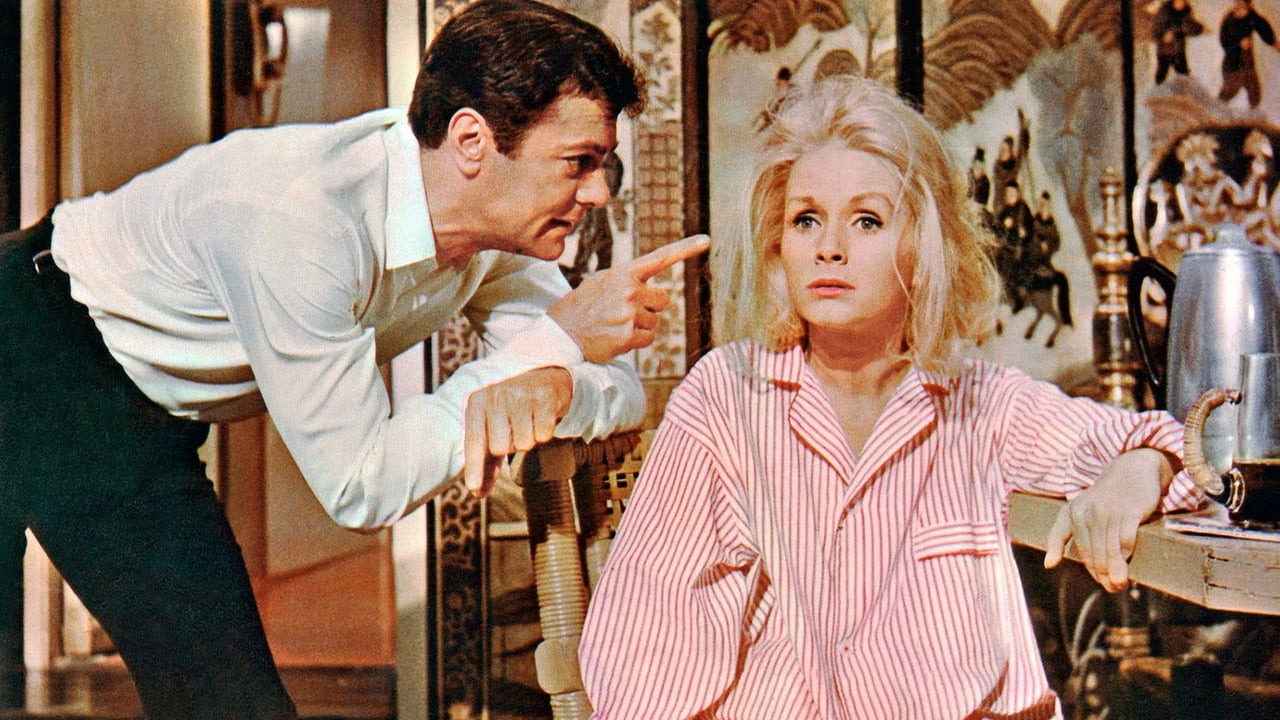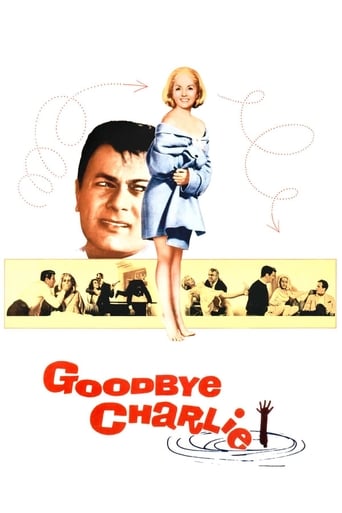



Wonderfully offbeat film!
People are voting emotionally.
I gave this film a 9 out of 10, because it was exactly what I expected it to be.
View MoreThere are moments that feel comical, some horrific, and some downright inspiring but the tonal shifts hardly matter as the end results come to a film that's perfect for this time.
View MoreProducer: David Weisbart. Copyright 18 November 1964 by Venice Productions. Released through 20th Century-Fox. New York opening at the Warner, Cinema 1 and other theaters: 18 November 1964. U.S. release: 18 November 1964. U.K. release: April 1965. Sydney opening at the Regent. 10,397 feet. 115 minutes.SYNOPSIS: A wild party is underway on the yacht owned by Sir Leopold Sartori (Walter Matthau). Among the revelers is Sartori's wife, Rusty (Laura Devon) who is dancing with Charlie Sorel. When Rusty and Charlie slip below decks, Sir Leopold follows them with a gun. There is a scream and a burst of gunfire as Charlie dives through the porthole into the water. George Tracy (Tony Curtis), a friend of Charlie's, is named executor of his will. After the funeral, which is attended by a few of "Charlie's Girls", the epithet given to the women in Charlie's life, George returns to his home. As he is about to retire, Bruce Minton (Pat Boone) and a dazed-looking blonde (Debbie Reynolds) break in through the patio sliding doors. NOTES: Running a disappointing 109 performances, the stage play, "Goodbye Charlie", opened on Broadway at the Lyceum Theatre (sic) on 16 December 1959. Leland Hayward produced and George Axelrod directed. Lauren Bacall was Charlie, Sidney Chaplin was George and Sarah Marshall was Rusty. The film characters of Bruce and Sartori were not in Axelrod's original play.COMMENT: Goodbye Minnelli! Lovers of frenetic farce and rabid fans of Curtis and Reynolds may find something to their taste in this sparingly witty but mostly witless caper. Two or three clever strokes such as Matthau's Kordaesque caricature of a Hungarian mogul and Martin Gabel's clone of "Swifty" Lazar betoken the behind-the- camera presence of film stylist Vincente Minnelli. But even five or six admirable brush strokes do not in themselves an appealing picture make. Alas, Charlie has little else of entertainment value up his/her sleeve.OTHER VIEWS: "Goodbye Charlie" hasn't lost a bit of its bad taste in transition to the screen. In fact, all the smarmy creepiness and sleazy smuttiness has been expanded. — Judith Crist in the N.Y. Herald Tribune.Few surprises and even fewer laughs in this sex scramble. There's a tastelessness about it that's deadly. — Time.
View MoreI just watched GOODBYE CHARLIE this morning and had to write a review about it. I think the greatest problem I have with the film is the way it seems purposely gay then at the last minute chickens out. The cop-out ending is truly problematic and undermines everything that came earlier in the story.I have not seen the stage play or read it. But my guess is the play did not end the way the movie did. I am thinking Fox decided to tack on the phony ending to ensure its commercial success and make it seem less gay by the final fadeout. Spoilers ahead for those who have not seen it yet.This story (based on George Axelrod's play) seems inspired by Thorne Smith's gender switching comedy TURNABOUT which was already filmed in 1940. In GOODBYE CHARLIE, the leading man (Tony Curtis) has realized he's developed feelings for the "girl" (Debbie Reynolds) who is his old skirt-chasing pal Charlie now reincarnated. At one point in the story, Reynolds' character realizes this is a karmic justice of sorts-- and Curtis says she's gone from being a pitcher to a catcher. Clearly, a reference to the versatility of gay sex.However, in order to give the audience a more mainstream happy ending, Charlene as she's now called, falls to her death again then Tony's character says it is probably for the best. A short time later, another woman out for a stroll along the beach comes up to the house and she's also played by Debbie Reynolds. She looks exactly like Charlie/Charlene, and when it's discovered she's single, we're led to believe these two will wind up together. A point in the dialogue is made that the new woman at the end has always been a girl, never a boy. Nothing has properly foreshadowed the tacked on resolution. It totally comes out of left field. A silly compromise is even included where the woman has a Great Dane that is named Charlie.Overall, I think this is a disappointing film that until the last five minutes had a lot going for it. There's even a nice subplot with a rich mama's boy (Pat Boone) who falls for Charlene and proposes marriage. She turns him down, but that can be read as the young man being really attracted to another man, which is just dropped when the engagement falls through. Given all Axelrod's humor about the sexes and clever use of reverse psychology, the story has/had great potential to show that love comes in all forms. But such a wonderful lesson is abruptly discarded so that the film can have a completely heterosexual finale. I can't help but think it would have been made more correctly in Europe. It truly deserved an ambiguous ending that made us think about the real nature of bonding, friendship and love.
View MoreBoy oh boy...do the opinions differ about this one! As a diehard Minnelli fan I went to see this one when it was first released. Even then I forgave its jerry-built comic premise and tried to enjoy it as I had some of Vincente's earlier assignments at M-G-M. But it really was quite labored and, for its day, a bit on the smutty side. Hard to believe that the devilishly clever George Axelrod had a hand in this script.Minnelli, as usual, insisted upon giving it the maximum possible visual gloss. An acquaintance of mine who worked on the art direction/production design team assigned by 20th-Century Fox to this project revealed that when Minnelli first came to the studio to review some planned sets and storyboards, he threw them out and insisted that everyone give it another, better try. The final result, along with Helen Rose's chic women's wardrobe (a Minnelli ally from M-G-M, and, probably, brought to Twentieth with Debbie's enthusiastic approval), and Milton Krasner's slick CinemaScope/DeLuxe Color cinematography, is a good example of studio product that was becoming increasingly out-of-touch with the emerging tastes of audiences looking for somewhat less glossy entertainments. Andre Previn's title song, with lyrics by his then-wife, Dory Langdon, aptly underscored the somewhat off-color proceedings. The VHS video is, no doubt, "formatted," so, once again, I warn all comers: "Don't bother!"
View MoreIt's labored and '60s-smutty from the get-go -- a smirking sex farce with no good lines and most of the major roles miscast. But if you sit through it, you'll get Walter Matthau doing an outrageous put-on as a libidinous movie mogul, sort of a Hungarian Dino di Laurentiis. His accent's all wrong, he's not remotely convincing as a Lothario, and yet it's such an all-out, audacious vaudevillian turn, you can't help but smile at him. You won't at anything else.
View More